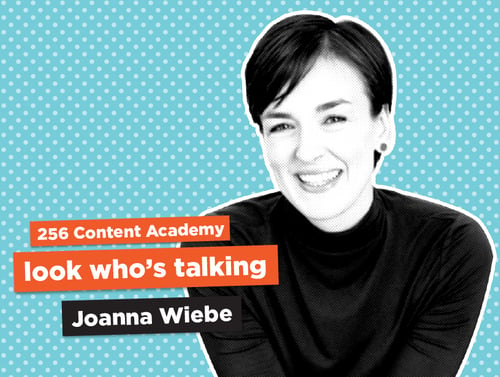Did you know your most valuable content marketing data is hiding in your search terms report? You can use this invaluable information to create new content and landing pages based on newly uncovered search terms that resonated with your audience.
Kirk Williams walks through what the search term report is and the process for determining the 'temperature' of a topic from a content strategy standpoint.
Video Transcription
Hi, I'm Kirk at Zato PPC Marketing. We're a paid search micro-agency focused primarily in e-commerce and D2C shopping ads and I'm the owner. I just released my first ever book, Ponderings of a PPC Professional, available now on amazon.com. You should pick one up.
But today I'd like to share my favourite way for finding blog topics, content, and e-commerce website page ideas and that is as a PPCer with the Google or Microsoft ads search terms report. So, four thoughts on this, four thoughts on using the search terms report found in the Google ads or Microsoft ads user interface, the UI.
The first thought is finding the search term report. This may not be as obvious, but in the standard shopping campaigns or your normal search campaigns, you can navigate to the keywords tab within a campaign or the entire account. Under the keywords tab, you will find another option for your search terms. It'll say search terms. Click on that and there you have the search terms. You can also find that in Google analytics as well, by the way.
Search term reports. What is a search term? A search term is what people are actually searching for, a keyword in PPC is what you bid on. Most of the time, a lot of times those can be matched up. That's where you have different match types, blah, blah, blah. We won't go into all that. But the search term report is valuable because that's actually what people are actually typing in, in order for your ads to show. So this gives you a lot of data that you can then use.
The second observation here is filtering with the search terms report. You found the search term report, so what should you do with it? Filter wisely with it. What I like to do is instead of looking at just this mountain of data, all of these search terms from all time or the past 60 days, there's just lots and lots of data, especially if you have a large account. So you want to start filtering that down to try to get bite-sized pieces.
So how do you do that? First of all, find things that are statistically significant. You can filter utilizing spend or impressions, how many impressions or clicks have different terms driven. You can actually use a filter in there. And by the way, you can save your filters so that you can look into them. So you might have a filter for "show me all search terms over a thousand impressions".
And then I like to, especially if I'm interested in trying to think through good blog topics or maybe if I'm working with an SEO team or a content team in terms of what they should build out, then I like to see what's actually converting because that means it's resonating with our users, our visitors. What we might do is search for, let's say, a thousand impressions, at least a thousand impressions, and that is beating our ROAS goal, our return on ad spend. That might be one thing, one way of doing that.
And then I might remove brand terms, things like that. So you can filter as you think best, but do use the filter in search terms report because that's how you're going to start analyzing the different paths to go down to actually make this work. What you'll want to do is filter for that, get an idea of what search terms are actually working. And then you have a list of these interesting search terms. These are the ones that people are actually converting on in your Google ads program. They are a lot of people converting on them. What should we do with this?
That's the third thought here, using the search term report for insights. Now is where you can start to turn that into something. In PPC we might take those and turn them into new keywords to target with our ads, until Google removes keywords and turns everything automated and we can't do that anymore. But for the time being, at least we can still see that and do that. What you can do on the content side or even the SEO side is you could use those to find new blog topic ideas. You might even search in your search terms report for questions like why or how and see that people are visiting and maybe even converting on questions. That question is a blog topic. That's wonderful. It's perfect. Hallelujah. So just different blog topic ideas you can gather from this.
Or you can use this information to change up your page titles or descriptions. You might look into an example for a product and see that, even though the way that you talk about a product is one certain way, refrigerator, let's say, you might be shocked to find out that most people who actually want to convert from you for whatever reason type in the word "fridge". That's vernacular in the U.S. I don't know if fridge is something that's used in the rest of the world but that's what we call it in the U.S. So you might decide, hey, let's test adding fridge in a title or description rather than just refrigerator. So, other ideas like that. I'm a PPCer. You SEOers will know way more about how to utilize that than me.
We've done this in the past. And this is really where I love the power of the search term report. That is that you can also use it for insights to create entirely new pages or categories of e-commerce purchasers to focus on. As an example, you might sell necklaces and realize that a lot of people who purchase are looking for a necklace for their sisters. You're looking at a new search term report and you realize whenever someone types in the word sister... And so then you create a new filter in your UI in the search terms. So then you're like, huh. You type in "sister" as a search term, a filter, and you look, and people are converting at triple the ROAS when they say "sister" and there's a lot of them.
Well, you don't have any page on your site that specifically calls out necklaces for sisters so you create a new category of page for sisters and you take the top-selling sisters necklaces and you put them on this page and you have a little blurb. You've just made this "shop necklaces for your sister" page and now you're ranking for that and you're doing all this awesome stuff. Not only maybe are you ranking in SEO land, but in PPC land now you can actually target that page specifically in your ads as well. There's just a lot that you can do with search term in terms of expanding your content.
Finally, a forethought here, just to consider, is not even just search terms but search terms next level in PPC. There are adwords scripts they're called, or Google Ad scripts, and they are automated-type things. If you've never done them before, at least do a lot of reading or get some help so that you don't totally screw up an account as you're looking into this.
A script runs basically an automated-type process in a bulk way and really, really powerful. There's something called an N-Gram script and there's one on Search Engine Land. Daniel Gilbert of Brain Labs put it out. Excellent. Go check it out. It's an N, the letter, N-Gram script. And what that does, in some ways it does a little bit of what we just talked about with a search term report, but it does this bulk way. It dumps everything in a spreadsheet so you just get a lot of data and it focuses on single word or especially single word or double word in bulk.
What are the top single words in spend, whether they're working or not working? Again, it's one of those things once you actually run it and start to look through the data, you'll just start to see these ideas of things that you can do just because you're looking at the data. In Google Ads, what are the two words together that are spending the most money and converting the poorest, or maybe converting the best, and then use that to create new content ideas or put them in titles or descriptions or whatever that might be.
There you have it, my favourite way for finding blog topics, content, e-commerce website page ideas. We do this at Zato for our own blog and our own site, and that is using the Google or Microsoft Ads search terms report.
Subscribe Here
You may also like...
256 | Nov 9, 2020
256 | Nov 2, 2020
256 | Oct 26, 2020








